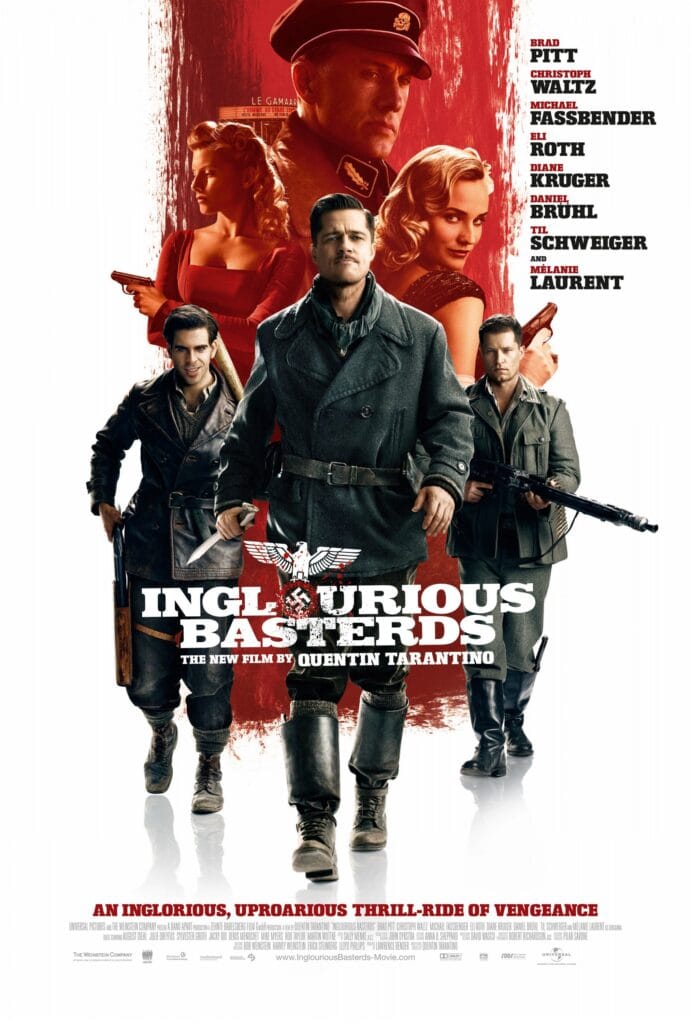Everyone knows Nazis are always the villains in real life and in fiction. If a Nazi says they’re into something, it’s probably a crime against humanity, a bad idea, or both. And yet, somehow, there are still some special individuals out there who can’t seem to grasp that Nazis are the ultimate brain-dead, soulless losers.
But don’t worry—I’ve got you covered. Here is the first of one hundred movies where those losers get exactly what they’ve been asking for: a one-way ticket to defeat, death, and sweet, sweet justice.
“Inglourious Basterds” (2009) (R)
Brad Pitt takes no prisoners in Quentin Tarantino’s high-octane WWII revenge fantasy Inglourious Basterds. As war rages in Europe, a Nazi-scalping squad of American soldiers, known to their enemy as “The Basterds,” is on a daring mission to take down the leaders of the Third Reich.
Bursting with “action, hair-trigger suspense and a machine-gun spray of killer dialogue” (Peter Travers, Rolling Stone), Inglourious Basterds is “another Tarantino masterpiece” (Jake Hamilton, CBS-TV)!

Quentin Tarantino’s Inglourious Basterds is a masterstroke of alternate history, blending violence, humor, and a fierce sense of revenge into an unforgettable cinematic experience. Set against the backdrop of World War II, the film subverts historical events, creating a revenge fantasy where Jewish-American soldiers hunt down Nazis with brutal efficiency.
At the heart of the film is the charismatic, icy villain Colonel Hans Landa (played by Christoph Waltz), whose chilling performance earned him an Academy Award for Best Supporting Actor. Landa is a predator, intelligent, manipulative, and disturbingly charming. He perfectly embodies Tarantino’s flair for crafting morally complex characters. Alongside him is Brad Pitt as Lieutenant Aldo Raine, the leader of the Basterds. Pitt’s performance is both comedic and commanding, delivering lines with an over-the-top charm that feels as much like a Western antihero as a war protagonist.
The film’s nonlinear narrative, a trademark of Tarantino’s style, is a thrilling ride. Each chapter unfolds like a tense, meticulously constructed vignette, with moments of dialogue-heavy suspense giving way to explosive violence. The most famous scene — a tense negotiation in a French basement — is a masterclass in tension, where every word spoken heightens the audience’s anxiety.
Tarantino’s trademark dialogue is on full display, with a rhythm and cadence that turn seemingly mundane exchanges into electrifying moments of drama. The film is brimming with cultural references, from Spaghetti Westerns to 70s exploitation cinema, which elevate it from a simple war movie to a work of art.
Ultimately, Inglourious Basterds is a movie about justice and vengeance, making a bold statement about the power of storytelling. Tarantino’s brilliant direction, sharp writing, and a standout cast make this a film that resonates long after the credits roll.
Plus, that ending? *chef’s kiss*




